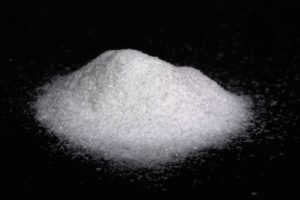 For years I heard health care providers recommend to persons worried about or with type 2 diabetes to only consume water, unsweetened coffee or tea, or zero calorie artificially sweetened beverages, including soda. Well, it turns out that artificial sweeteners have all sorts of harmful health effects, with different sweeteners (e.g., erythritol) having different effects.
For years I heard health care providers recommend to persons worried about or with type 2 diabetes to only consume water, unsweetened coffee or tea, or zero calorie artificially sweetened beverages, including soda. Well, it turns out that artificial sweeteners have all sorts of harmful health effects, with different sweeteners (e.g., erythritol) having different effects.
Another recent study found that the consumption of diet drinks and saccharin, a very popular sugar substitute, are associated with an increased risk of type 2 diabetes. In other words, the sweeteners are linked to the very problem people are trying to avoid.
A little confusingly, the researchers did not find a link to type 2 diabetes when looking specifically at overall artificial sweetener, sucralose, and aspartame intake. But they did with saccharin (the oldest artificial sweetener in use) and overall diet drink consumption.
This study questioned people 3 times over 20 years, with a final follow up at 30 years, so perhaps these results are due to different artificial sweeteners used in drinks over time, and even what they themselves purchased. For example, some people buy saccharin to add to coffee and tea at home.
From Medscape: Diet Drinks, Saccharin Tied to Increased Diabetes Risk
Consuming higher amounts of diet drinks and/or saccharin was associated with an elevated risk of developing diabetes, while total artificial sweetener intake, sucralose, and aspartame showed no significant association, according to an analysis of data from the Coronary Artery Risk Development in Young Adults (CARDIA) study.
30-Year Study: The current analysis, presented at NUTRITION 2025, the annual meeting of the American Society for Nutrition, included 4654 adults (54.4% women, 50.1% White individuals) enrolled in the CARDIA study, with a mean age of 24.9 years at baseline in 1985-86.
Dietary intake was assessed by the CARDIA diet history at year 0, year 7, and year 20. The cumulative average intakes of artificial sweeteners, diet beverages, aspartame, and sucralose were calculated.
Over a median follow-up of 30 years, 691 incident diabetes events occurred. Participants in the fifth quintile of diet beverage intake had a significantly higher risk of developing diabetes than those in the first quintile.
Positive associations were also observed for intakes of saccharin. Adjustment for waist circumference attenuated the associations slightly, but overall, higher intakes of diet beverages and saccharin were associated with an increased risk for incident diabetes.
A previous CARDIA analysis by Steffen’s team suggested that long-term intakes of aspartame, saccharin, or diet soda were related to greater volumes of visceral, intermuscular, and subcutaneous adipose tissue.
“I recommend limiting the use of any sweetener,” Steffen told Medscape Medical News. “For beverages, I suggest unsweetened water, coffee, tea, milk, or small amount of 100% fruit juice — a small amount meaning limited calories, not 12- or 20-fluid-ounce containers.”
